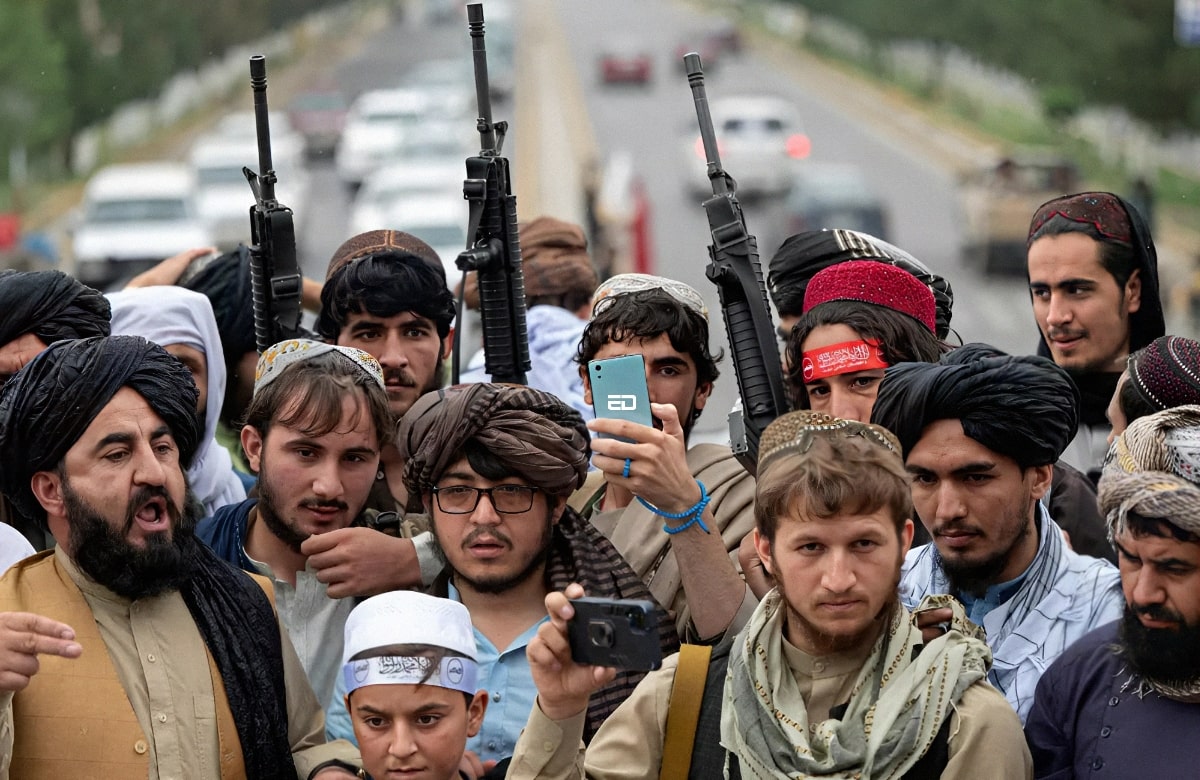In a surprising turn of events, Kabul, the once war-torn capital of Afghanistan, is witnessing a gradual but notable transformation in the mindset of its ruling power, the Taliban.
More than two years after their takeover, the Taliban fighters, who once vehemently opposed Western influence and embraced a conservative rural lifestyle, are now seen indulging in the benefits of urban life. This shift has sparked discussions and raised questions about the potential remaking of both the city and the Taliban itself.
City Life Beckons
As the bustling streets of Kabul continue to evolve, so do the individuals who now call it home. Taliban fighters, once confined to remote regions and mountains, now find themselves exploring theme parks, enjoying cricket matches, and even engaging with social media platforms like Facebook.
The sight of them mingling with other urbanites in English schools underscores a newfound eagerness to embrace opportunities typically associated with city living.
Adaptation and Resistance
However, this transformation isn’t without its complexities. While some Taliban members are embracing modern conveniences and expressing regrets over missed educational opportunities, others find themselves grappling with the challenges and perceived moral decay of urban life.
The clash between traditional values and the allure of urbanization presents a multifaceted narrative that reflects the broader tensions within Afghan society.
Read More: “Inappropriate For Unwed Women,” New Crack Down By Taliban On Single Females
Dreams of Economic Prosperity
Amidst the shifting landscape, dreams of economic prosperity loom large. Some Taliban members envision Kabul as an Afghan equivalent of Dubai, a glitzy commercial hub teeming with opportunities. The desire for material success and a better quality of life underscores a growing recognition of the potential benefits that urban development can bring.
Challenges and Contradictions
Yet, amidst the desire for progress, contradictions abound. While Taliban fighters embrace modern amenities like reliable internet access and high-definition television, they grapple with the loneliness and challenges of city life.
The tension between newfound comforts and adherence to religious and cultural values underscores the complexities of navigating change in a society marked by conflict and transformation.
Women’s Rights: A Stifled Progress
While some aspects of urban life may be changing, the plight of women remains a poignant reminder of the enduring challenges facing Afghan society. Despite hopes for moderation, restrictions on women’s rights persist, with universities closed to them and girls above grade six barred from school.
The struggle for gender equality serves as a stark reminder of the limitations of the Taliban’s evolving stance on urbanization.
As Kabul grapples with the complexities of urbanization, the Taliban’s vision for postwar reconstruction looms large. Plans for a “New City” on the outskirts of Kabul symbolize aspirations for a modern future, yet obstacles remain, including the reluctance of foreign donors and the challenge of balancing tradition with progress.
The journey toward reconciliation and development is fraught with uncertainty, but the evolving dynamics within Kabul offer a glimpse into the complexities of Afghanistan’s path forward.
In the heart of Kabul, amidst the bustling streets and towering skyscrapers, a transformation is underway. The once rigid boundaries between tradition and modernity are blurring, as the Taliban grapples with the realities of urban life.
As Kabul continues to evolve, so too does the Taliban, navigating the delicate balance between preserving cultural identity and embracing the opportunities of a changing world. Amid uncertainty, one thing remains clear: Kabul’s journey toward progress is as complex and multifaceted as the society it seeks to reshape.
Image Credits: Google Images
Feature image designed by Saudamini Seth
Sources: The Washington Post, Afghanistan Analysts Network, Time Magazine
Find the blogger: Pragya Damani
This post is tagged under: Kabul, Afghanistan, Taliban, urbanization, cultural transformation, societal change, women’s rights, traditional values, modernity, economic prosperity, conflict, reconciliation, development, urban lifestyle, gender equality, postwar reconstruction, foreign donors, cultural identity
Disclaimer: We do not hold any right, copyright over any of the images used, these have been taken from Google. In case of credits or removal, the owner may kindly mail us.
Other Recommendations:
ResearchED: How Two Years Of Taliban Rule Impacted Women, Economy, And Geopolitics
































[…] ResearchED: Everyone Thought Taliban Would Change Kabul But The Reverse Is… […]